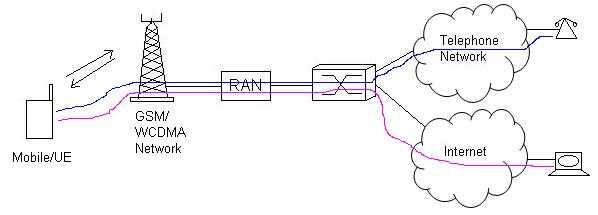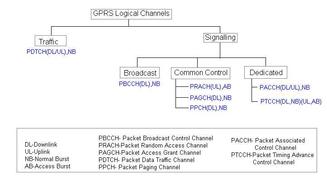Circuit Switched vs. Packet Switched Calls: Key Differences
Advertisement
This article breaks down the differences between circuit-switched (CS) calls and packet-switched (PS) calls. We’ll look at how they work, their ideal applications, and explore some useful call flow links for GSM and WCDMA.

Circuit Switched Call
In a circuit-switched call, a dedicated path, or “circuit,” is established between the originating mobile and the terminating mobile. This circuit remains open and exclusively used for the duration of the active call. Data is transmitted over this dedicated path at a consistent, fixed bit rate.
Circuit switching is well-suited for applications where a reliable and dedicated connection is essential between two parties. A prime example is a real-time voice call where high quality and minimal interruption are crucial.
The diagram above illustrates the route for a circuit-switched call with the blue line.
Packet Switched Call
In contrast, a packet-switched call operates by breaking data into small units called “packets.” These packets from the same source (originating mobile) can travel along different routes to reach their destination (the terminating mobile). The key here is that data is transmitted in parts.
Each packet includes a header containing the destination device’s address. This address information allows network devices to route each IP packet individually.
The diagram shows the route for a packet switched call represented by the pink line.
Advertisement
 RF
RF






